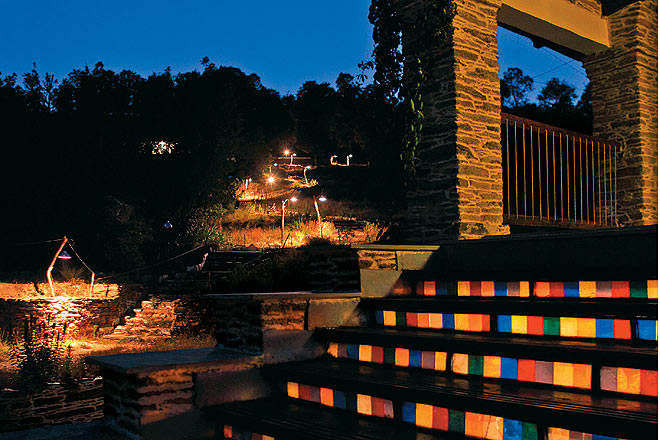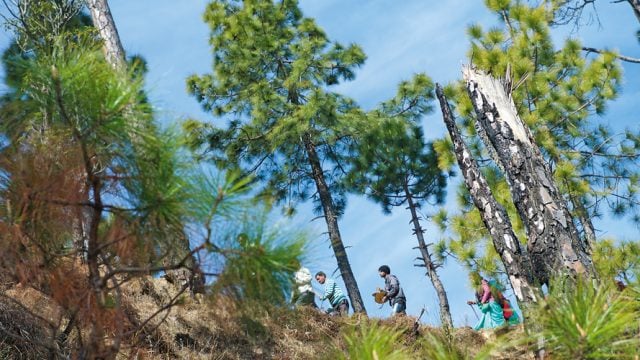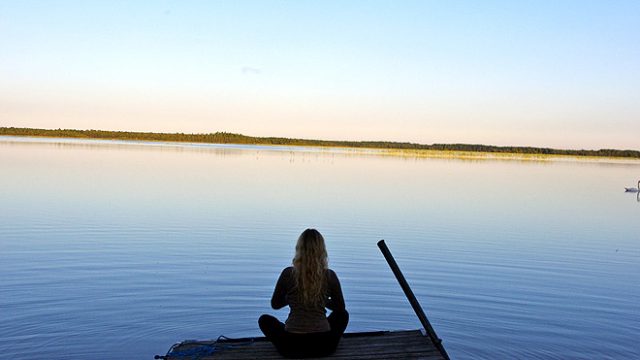Two different stories held me captivated the first day I spent in Dunagiri. “Dunagiri is one of the
“There used to be hundreds of apple trees in Dunagiri. Over there — just below the property — were the government gardens, which were filled with every variety of apple there is: Delicious, Rimer (sour, big), Jamunathan, Green Seed (green) , Yellow Label, Buttony (small, sweet), Eldisenaria (golden). My school was on the other side of that mountain. We never used to eat lunch when we were in school; we would stop by the gardens and pick and eat apples till we were full. And plums and peaches and pears, apricots, cherries, almonds, chestnuts… There used to be so many apples, so much fruit, that there would be cartloads left even after they were sold in the market — left on trees, in the bushes. There are very few apple trees left now. The climate has changed, people have cut the trees down. It isn’t the same as before.”
Time and global warming notwithstanding, the stories frame Dunagiri, a place lush with both natural and mythological lore. Driving up the road, endlessly, to reach Dunagiri House is a strange, calming sort of experience. When the car finally stops and we see a house — grey stone, hung with a starflower creeper and infinite possibilities, one part from a different age, smoke rising out of its tin roof — we feel like the scene couldn’t possibly be any other; this is how it should be.
“You think you’ve bought the land, but the land’s bought you. It remains after you go,” muses proprietor Piyush Kumar. As we linger on the steps of the house at dusk, watching heavy monsoon clouds form over layers and layers of mountains, obscuring the million-starred sky but creating a strange halo around the moon, Piyush’s voice is prophetic, Biblical, compelling. He fell in love with the area and six years ago bought the ten-acre piece of land on which ‘Ananta — The Dunagiri Retreat’ stands. A charming stone house thirty or forty years old stood on the land, and the new owner’s sense of connection and history restrained him from tearing it down and rebuilding. The renovation, resulting in the present Dunagiri House, has been a slow process, using only local materials and labour and in keeping with the story and soul of the place. Three newer structures, with two or three rooms each, have been constructed across the property, differing slightly in size and feel: the rooms in Panchachuli Cottage, for instance, are smaller and more rustic in their décor, although currently being extended; the rooms in the main house and Trishul Cottage are larger and afford lovely views. The interiors are simple — airy rooms scented with linseed oil, wooden floors and window seats, bathrooms with views of Nanda Devi and Trishul. And there is a stillness about the place that never really makes it feel like a holiday resort, more like a place where time has paused for you to ponder on the beauty of the walnut tree, the petiteness of the Uttarakhandi oak, layers of mountains and valley with traces of gossamer cloud on one side and the stunning himal peaks on the other.
So while spirituality isn’t everybody’s cup of tea, nor everyone’s idea of a mountain getaway, something about ‘Ananta’ does really hit the spot. The retreat is managed smoothly and unobtrusively by Piyush and his small staff, all from Chari village. Food is home-style, much of it coming from the rows of vegetable and fruit grown on the property, or else around it. Piyush’s connection with the history and geography of the place is an important part of the experience: not only does he know the stories behind most temples, mountains and trees within eyeshot, but there is a tremendous concern about the place as it is now, reflected in the constant hatching of plans for sustainable livelihoods or in the loud chatter of a hundred village children learning English in the courtyard behind the house (yes, be warned that afternoon siestas aren’t part of the spiritual diet). There is an authenticity and a wholeness about spending days (weeks!) at Dunagiri. You shed something as you drive up the mountain to the point where the metalled road ends, and put out a root here. That’s a special kind of spirituality.
The information
Location: Village Chari, P.O. Dunagiri, District Almora, Uttarakhand; 400km/ 11hr from Delhi
Contact: dunagiri.com
cottages
Dunagiri
Dunagiri Retreat




